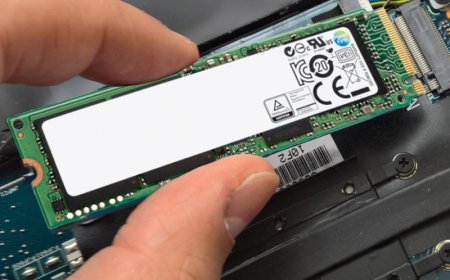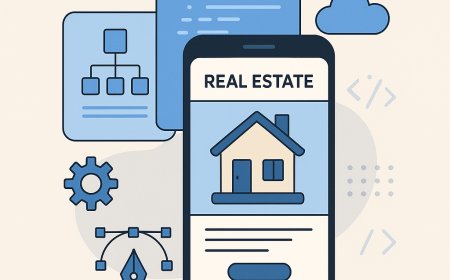Cybersecurity in Healthcare: Why Managed IT Services are Essential
Know why managed IT services for healthcare are essential to combat cyber threats, ensure compliance, and protect patient data across.

The healthcare industry is one of the most data-rich and technologically reliant sectors in the UK. From digital patient records to diagnostic software and telehealth platforms, healthcare providers are increasingly dependent on IT systems. However, this dependency also makes them highly vulnerable to cyber threats. In recent years, ransomware attacks, phishing scams, and data breaches have surged in frequency and complexity, making cybersecurity a critical concern. This is where managed IT services for healthcare come into play, offering proactive and comprehensive solutions that protect sensitive information while ensuring seamless operations.
The Role and Relevance of Managed IT Services Today
Outsourcing an organisation's IT management to a specialised third-party source is known as managed IT services. These services cover a wide range of functions such as infrastructure monitoring, cybersecurity, data backup, disaster recovery, cloud management, and helpdesk support. For healthcare organisations,managed IT services for healthcareprovide sector-specific solutions tailored to compliance, patient safety, and operational continuity.
Rather than reacting to problems after they occur, these services proactively monitor networks, detect vulnerabilities, and apply security patches. This preventative approach helps avoid system failures, unauthorised access, and data loss, while supporting a secure environment for both patients and staff.
The Growing Threat Landscape in Healthcare IT
Healthcare data is a prime target for cybercriminals. According to a 2024 report from the Information Commissioner's Office (ICO), the UK healthcare sector continues to account for the highest number of reported data breaches. Patient health records, which contain personal, financial, and medical information, are extremely valuable on the dark web.
The increase in telehealth services and remote access technologiesspurred by the pandemichas further widened the threat surface. Weak access controls, outdated software, lack of staff training, and legacy systems are just some of the vulnerabilities exploited by cybercriminals. Moreover, the financial and reputational damage from such breaches can be catastrophic, often leading to legal liabilities, compliance fines, and erosion of patient trust.
Key Cybersecurity Challenges Faced by Healthcare Organisations
Healthcare providers must tackle a range of cybersecurity challenges that are unique to their sector. These include:
- Ensuring the confidentiality, integrity, and availability of electronic health records, which are a prime target for attackers
- Complying with stringent regulations such as GDPR, NHS Digitals Data Security and Protection Toolkit, and in some cases HIPAA for international cooperation
- Managing complex IT setups combining old and new systems creates integration issues and lacks standardisation.
- Mitigating insider risks like weak passwords or accidental data leaks helps strengthen overall cybersecurity posture.
- Enabling secure remote access for medical staff and support teams, especially in hybrid work models
These challenges demand ongoing monitoring, technical expertise, and regulatory awareness, all of which can stretch internal IT teams thin. This is where managed IT support services can offer critical relief.

Key Benefits of Managed IT Services for Healthcare Cybersecurity
Continuous Monitoring and Threat Detection
One of the major advantages of using managed IT support services is around-the-clock monitoring. Threats to cybersecurity don't work 9 to 5, and your defenses shouldn't either. Anomalies can be found and dealt with by ongoing surveillance before they become serious incidents.
Sector-Specific Compliance and Regulatory Support
Healthcare organisations must meet numerous regulatory requirements, which can be both time-consuming and complex. Healthcare managed IT services guarantee that your systems comply with both domestic and foreign data protection regulations. Service providers help maintain audit trails, manage risk assessments, and prepare compliance documentation.
Data Backup and Disaster Recovery
Data is the lifeblood of healthcare. Robust disaster recovery strategies and safe, automatic backup solutions are offered by managed IT services. In the event of a cyberattack, hardware failure, or natural disaster, these services ensure that data can be quickly restored with minimal downtime or disruption to patient care.
Expertise and Access to Advanced Technologies
Managed service providers bring a team of specialists with experience in the latest security protocols, threat detection software, and compliance tools. This is particularly valuable for healthcare organisations that cannot afford the time or cost of training in-house teams for evolving cybersecurity landscapes.
Cost Efficiency and Predictable Spending
Outsourcing to a managed IT support services provider offers financial predictability. Instead of unexpected costs associated with fixing major IT failures or paying regulatory fines, you pay a consistent monthly fee for proactive monitoring, updates, and support. For detailed pricing structures and packages, please visit our website.
Scalable Solutions
As healthcare facilities grow or incorporate new technologies, IT systems must scale accordingly. Managed IT services offer flexible packages that adapt to your changing needswhether its adding more storage, securing a new branch, or integrating cloud platforms for remote consultations.
Impact of Managed IT in Healthcare Settings
Numerous hospitals and clinics across the UK have already embraced managed IT services to boost their cybersecurity posture. In one recent case, a mid-sized healthcare provider was able to prevent a ransomware attack due to timely detection by their managed service provider. The attack was neutralised before any data could be exfiltrated or encrypted, saving the organisation from severe financial and operational setbacks.
In another case, a network of private clinics implemented a centralised backup and disaster recovery solution throughmanaged IT support services. As a result, they were able to quickly recover patient data following a server outage, without compromising service delivery.

Choosing the Right Managed IT Partner for Your Healthcare Organisation
Selecting the right provider is key to realising the full benefits of managed IT services. When choosing a partner, healthcare organisations should consider:
- Proven healthcare sector experience with deep understanding of unique compliance and regulatory requirements.
- Possession of ISO 27001, Cyber Essentials Plus, and NHS framework knowledge ensures trusted, compliant IT support.
- Fast response times and guaranteed SLAs ensure timely issue resolution and reliable IT service delivery.
- Customisable services tailored to fit your internal policies and patient safety standards for seamless integration.
- Clear and open communication with detailed reports and structured escalation ensures service transparency.
A proactive managed IT services provider will not only support your current infrastructure but also offer strategic guidance for future growth and innovation.
Conclusion
Managed IT services for healthcare offer comprehensive protection, regulatory compliance, and peace of mindmaking them an essential component of modern healthcare infrastructure. By outsourcing IT management to skilled professionals, healthcare providers can focus on what truly matters: delivering safe and effective patient care. Renaissance Computer Services Limited is committed to supporting healthcare providers across the UK with tailored cybersecurity solutions and managed IT support services. With a focus on compliance, reliability, and innovation, we help healthcare organisations build resilient IT environments that protect patient data.





































